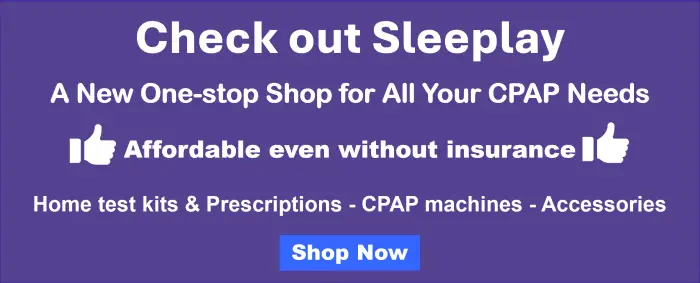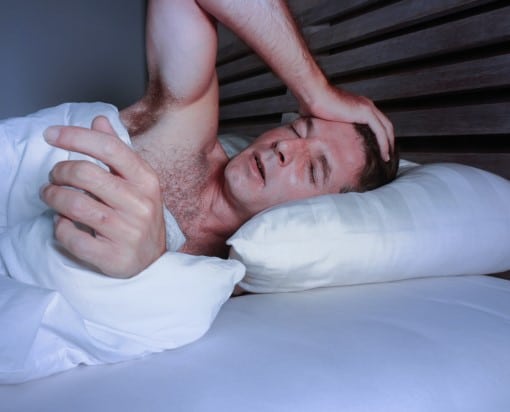
Getting sleep during a CPAP power outage: What to try and how to prepare for the next time
By Jason Wooden, PhD | January 26, 2021
A CPAP power outage can ruin your night and wreck the next day. Depending on your situation, you can try riding it out, changing your sleep position, or temporarily sleeping somewhere else.
For future power outages, your options include a travel CPAP machine, a battery backup, or a power generator. You should also maintain sleep hygiene and be prepared for the health issues that affect sleep.
The night I got hit with a CPAP power outage
The other night I woke up confused.
I wondering why I was awake and noticed my CPAP machine was dead quiet. Glancing around a pitch black room, I slowly realized my CPAP had stopped running because of a power outage.
What followed was a sense of dread because I had gotten used to being human again now that my sleep apnea is mostly under control. In fact, you could say that life was good again and I could look forward to the next day.
Unfortunately, the power didn’t come back on until late in the morning and by then I was toast for the day.
Game over.
I’m guessing I’m not the only one this has happened to you since CPAP is the most common treatment for the millions of sleep apnea victims.
Fortunately, where I live power outages only happen a couple times a year.
If you can afford loosing a day, that’s all good and dandy. However, if you can’t, then you need to be prepared. (I’m among those who can’t loose a day, especially during the work week.)
And what if you live somewhere where power outages are a frequent occurrence?
Or maybe, it’s a time of the year where you get all sorts of storms that can knock out the power grid.
If you go without power for days or weeks, that could mean long stretches of untreated sleep apnea which is a serious issue. Besides making you a sleep deprived zombie, it can increase your risk for all sorts of health complications.
What to do during a power outage is a common question on many CPAP forums.
After the most recent CPAP power outage, I was inspired to take a more serious look at what I could have tried that night and what I can do to prepare for the next time.
What are the risks for CPAP users during a power outage?
Before we get into your options, you may be wondering what happens if there’s a CPAP power outage.
If you’re new to CPAP, you may worry about suffocation.
Fortunately, most people wake up when their machines shuts off.
And CPAP setups are designed with safety features.
According to ResMed, one of the biggest manufacturers of CPAP machines, nasal mask users will naturally breath through their mouth and full face masks have a safety value that will open if there’s a CPAP power outage:
You can still breathe room air if your machine stops working. Nasal and nasal pillows mask users will naturally breathe through their mouth to get room air. And full face masks have what’s called an anti-asphyxia valve in the front that automatically opens to let room air into your mask if your CPAP shuts off. – ResMed
So, the main worry appears to be that your sleep apnea will not be kept under control which can make for a miserable night and ruin the next day. Depending on your health situation, it’s a pretty serious issue if this goes on for a prolonged period.
Also, if you’re a major snorer without CPAP, that’s going to ruin the sleep of a bedmate.
If this is something you’re really worried about, you can check with the manufacturer for your specific CPAP setup to be extra sure.
You can also buy a power outage alarm online which can alert you if the power goes out.
CPAP during a power outage: what to try if it happens to you
Okay, let’s take a look at what you can do if this happens again.
Depending on how long you think it’s going to be, below are some things you can try if you face another CPAP during a power outage.
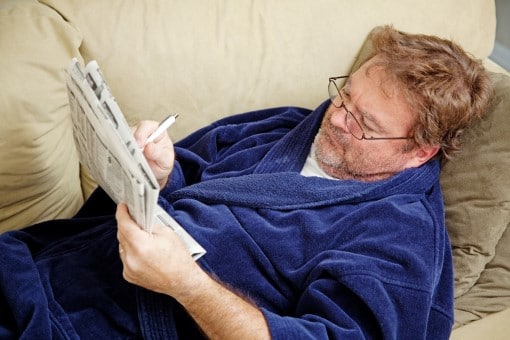
1) Ride it out
This may or may not be workable, especially if your sleep apnea symptoms are really severe or it’s early in the night. If it’s just a couple hours before you would normally get up, perhaps you can get away with a little light sleep.
With a 2AM CPAP power outage, this wouldn’t have worked for me.
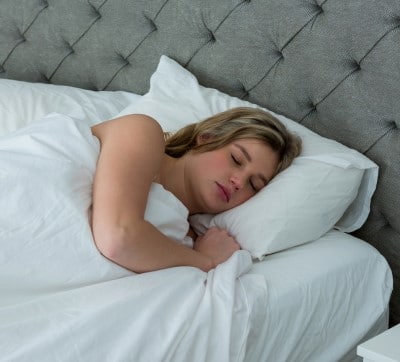
2) Sleep on your side
This one may work best for people with obstructive sleep apnea who’s symptoms are position dependent. (This is the most common type of sleep apnea which happens because the throat relaxes too much during sleep.)
It’s long been known that sleeping on your back can make sleep apnea worse because the tongue relaxes back towards the throat blocking the airway even more. It turns out over half of obstructive sleep apnea patients are position dependent.
In studies, forcing these patients to sleep on their sides was shown to improve sleep apnea symptoms. While it might not be as effective as your CPAP machine, it may help take the edge off of things for a night or too.
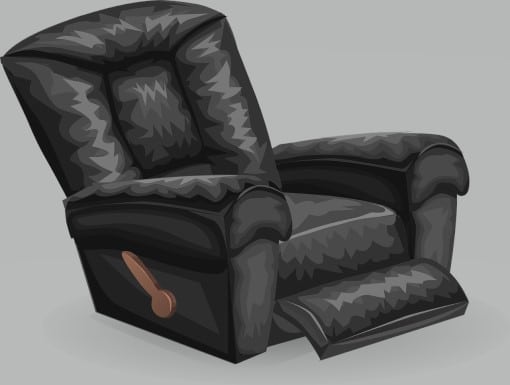
3) Try sleeping upright in a recliner
Another position change that might help is to sleep in a recliner. I have a friend who swears by this.
I have even used it occasionally as an emergency option when I’m having a bad cpap night. I have to say that it doesn’t work as well for me as my CPAP machine.
However, it may work for you. And it’s good to have another option if sleeping on your side isn’t workable for you.
In studies, sleeping with your head elevated has been found to reduce severity of sleep apnea by 30 percent.
Research suggests head elevation will be most useful if:
-you’re overweight
-your sleep apnea is mild to moderate
-you slightly elevate your head

4) Relocate
If you can afford it, you may want to ride things out in a hotel if it looks like it’s going to be awhile. It’s not uncommon after a severe weather event for the power to be out for days or even weeks.
If that’s the case, you’re going to be a wreck after a couple days. Relocating to a hotel will help you to keep your CPAP powered, maintain a comfortable sleeping environment (cooled or heated as needed), and keep you in a more relaxed setting.
Strapped for cash? Perhaps you can relocate to a friend or relative.
How to keep your CPAP machine running during a power outage
If your sleep apnea symptoms are more on the severe side or the stakes are just too high, you may want to do something more serious than the options above.
Ditto if you live in area where power outages are a frequent occurrence.
You’re not looking for a band aid, you need a CPAP power outage work around you can regularly count on.
Below I’ve listed various options I’ve come across, including a few I’m seriously thinking about doing.
They all cost money but it’s well worth it given what’s at stake. It took me days to recover from one night of lost power and CPAP.
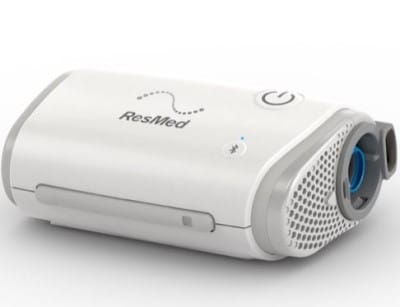
1) Travel CPAP machine
Cost: $350 to $1000
These machines are compact, lightweight, and have batteries that will keep them running anywhere from 8 to 16 hours.
They come with the added advantage for regular trips. You can take them where ever you go, whether it’s an airplane, in hotel room, or camping trip. So, you’re going to get your money’s worth.
A couple places to look:
CPAP.com
ResMed
Philips
Since these are medical devices, you’ll still need a prescription to order one. Unfortunately, most insurance doesn’t cover travel CPAP machines since they are seen as secondary machines.
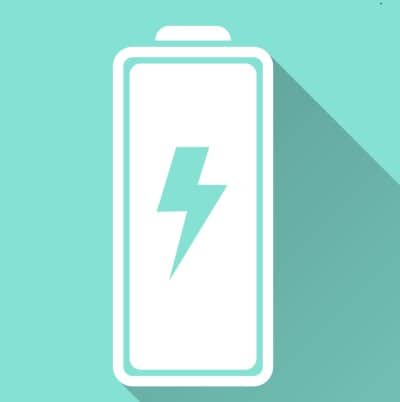
2) Battery power back ups
Cost: $200 – $900
You shouldn’t be surprised that all the major CPAP manufacturers offer battery packages. They vary in cost depending on the type of battery, battery life, and accessories.
A couple places to look:
CPAP.com
1800cpap.com
ResMed
You can also find backup power suppliers that you can use with CPAP machines online on websites like Amazon.com and Walmart.com. Depending on how much money you want to spend, some can even be recharged by solar.

3) Power generator
Cost: $200 to $6000
While this is one of the pricier options on this list, it may be worth it if you live in area with frequent power outages or they can last for extended periods.
Cost will vary depending on whether you’re getting something portable or a unit more tied into your home that you want to power lots of other things besides your CPAP machine.
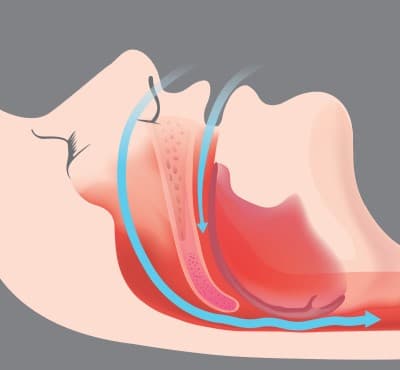
4) Get an oral appliance
Cost: $1800 – $2000
Oral appliances are mouth pieces designed to keep the airway more open during the sleep. They are fitted and custom made by qualified dentists.
They’re best for people with mild to moderate sleep apnea. While not as effective as CPAP, they’re a low tech back up that can give you some relief during a CPAP power outage.
What to do if your CPAP stops working after a power outage
Here’s a scary thought…
The power finally comes back on, you turn your CPAP machine, and you see a “service required” alert.
Or maybe you try to fire it up and nothing happens.
Though rare, there are reports of CPAP machines malfunctioning after a power outage on various online forums.
These machines are built to survive normal wear and tear. ResMed builds their units to be replaced after 5 years of use.
However, it is possible that a CPAP power outage could affect the electronics. In fact, a power surge could also fry parts of the machine.
If this happens to you, there are a couple things you can try:
- Unplug the machine, wait a few minutes, and turn it back on to reboot the machine
- Call tech support for the manufacturer
- Bring it to your local supplier and request a loaner to use while they’re repairing the broken one
- Ask your doctor for a prescription for a replacement machine
If you want to protect your machine from future power surges, run it from surge protected outlet or power strip.
Customer Support:
Philips Respironics
ResMed
Other things you should do to keep your sleep on track
We’ve talked about work arounds for handling a CPAP power outage. You really need to have a game plan to keep your sleep on track in the event of prolonged outage.
Losing power for your CPAP machine isn’t the only issue. Changes in your sleep routine and environment can also worsen your sleep.
That’s why it’s important to make sure you’re still following the rules of sleep hygiene as best as you can:
- wake up and go to bed at the same time every day
- exercise
- avoid large meals, alcohol, and stimulants such as caffeine before bedtime
- maintain a bedtime routine
- avoid electronics (TVs, tablets, smartphones) near bedtime
- keep your bedroom dark, cool, quiet, & relaxing
If you’re dealing with other health problems, make sure that’s taken care of too whether it’s chronic pain or diabetes. All too many health issues are linked to poor sleep.
You may also be interested in:
Connect with us:
About Us
Better Sleep Simplified® was founded as a place for you to get clear and well-researched information.
Our goal is to make sure you know about your options so that you take action sooner rather than later.
Check us out on YouTube:
Watch and Learn
Helpful sleep tips, interesting sleep facts and statistics you want to know about
Affiliate Disclosure
This site is a participant in the Amazon Services LLC Associates Program and other affiliate advertising programs designed to provide a means for sites to earn advertising fees by advertising and linking to them.
Important: BetterSleepSimplified.com is for informational purposes only and is not intended or implied to be a substitute for professional medical advice, diagnosis, or treatment. Always consult a physician for sleep and health concerns. See additional information.

